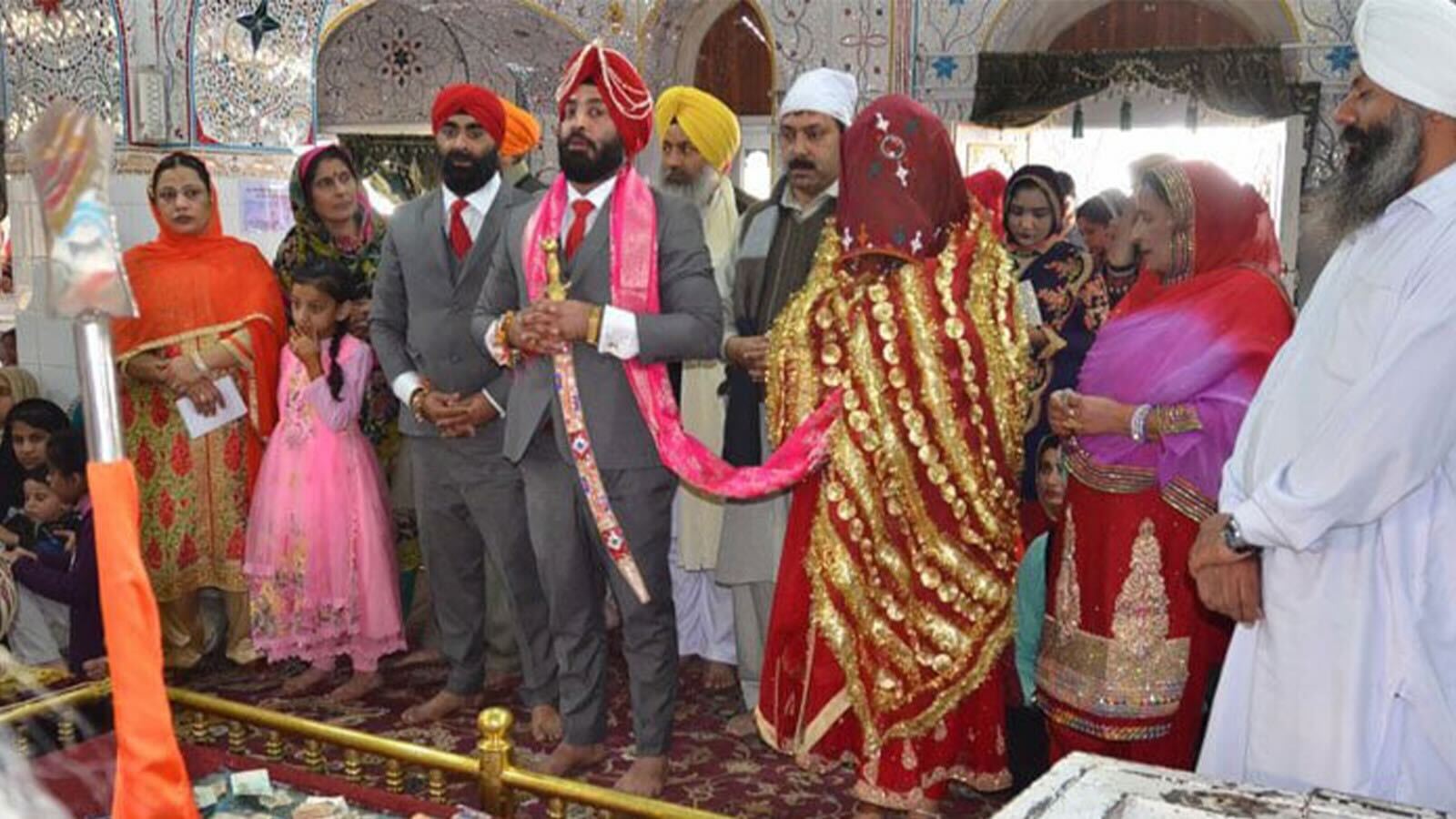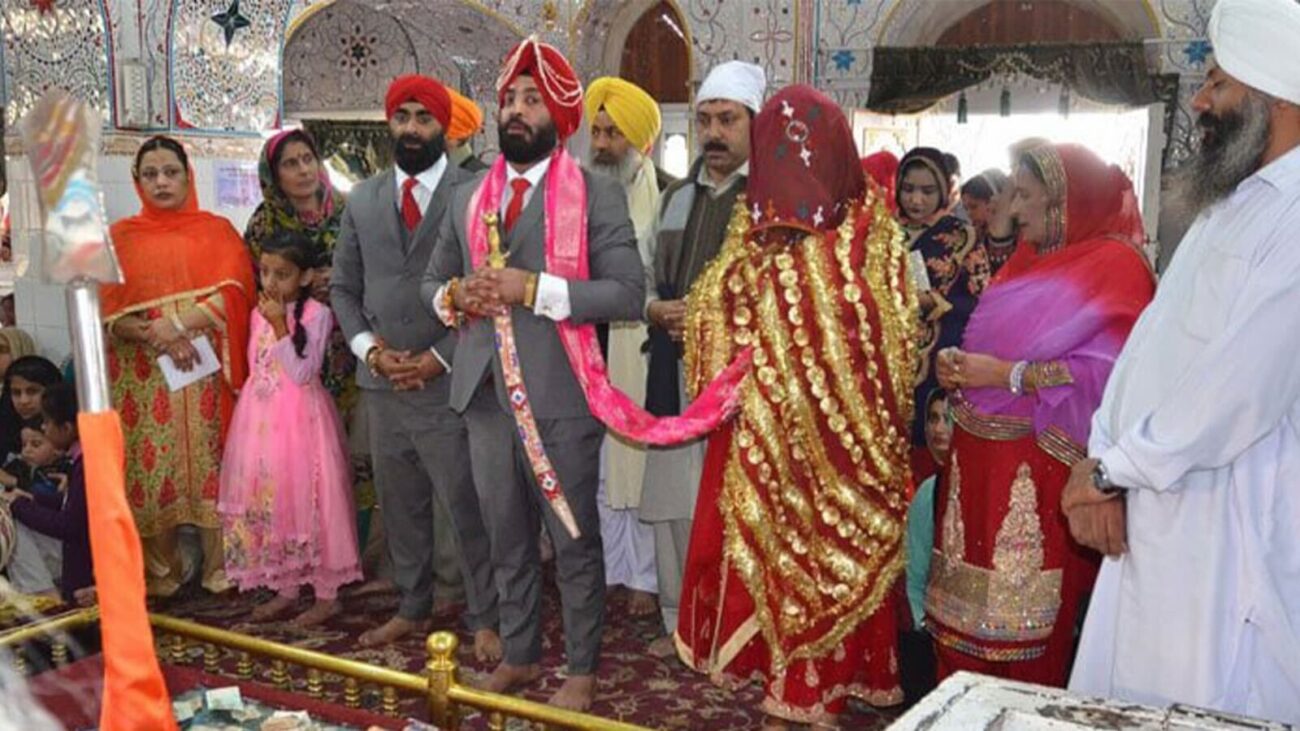Punjab, Pakistan Becomes First Province in the World to Implement Sikh Marriage Act


Following its detailed discussion, Punjab became the first province in the world to pass a Sikh Marriage Act in February. ‘It is historic and a victory for Sikhs,’ said Bikram Singh, vice-president of the parliamentary Sikh party Akali Dal, according to The Guardian. ‘This move is a step towards the establishment and recognition of personal law for Sikhs.’
Historical Context and Significance
That makes the Sikh Marriage Act in Punjab, not just a legal development, but a cultural one. For decades since Partition, Sikhs in Pakistan had their weddings solemnised and registered under the civil general marriage laws, which left out many of the specific religious and cultural tenets in the Sikh matrimonial traditions. The new act will help them solemnise marriages under specific Sikh religious rites and formally register them. This has been a long-standing Sikh claim for recognition of their identity and traditions.
It fills a certain need within the Sikh community, which has often sought recognition for its marriage but had no legal framework that specifically catered to the distinct rituals and customs embedded in Sikhism, such as the Anand Karaj (Sikh marriage ceremony).
Key Provisions of the Act
Registration and solemnisation: The Board may register and solemnise a marriage according to the form of Sikh rites and ceremonies.This would mean that Sikh marriages could be officially logged according to Sikh rites and ceremonies, and registered without the need to navigate another separate legal system.
Certificate of Marriage: Krishna and I echoed the vital importance of the certificate of marriage she and her husband received. ‘Soon, this certificate will be registered under the Act and will be accepted by the government,’ she said. ‘We discussed this with our marriage registrar, and he said that the certificate, which is recognised by the Act, will be valid for any official purpose.’ This is important because what does a bigger state look like if a couple can’t even possess a piece of paper to acknowledge their marriage? Certificates provide corroboration and proof. They are what situate two lovers at the centre of on official government of their own making. Krishna explained that these certificates would be helpful as couples travel abroad: Their recognition in other countries cannot be just a piece of paper in a tupperware box in the back-up room somewhere.
Rights Protection: The Act also provides a mechanism to manage disputes pertaining to the marriage and protection of the rights of one within a marriage. This will include consideration of divorce, maintenance and all other issues pertaining to marital relations and the same will be addressed as per the traditional Sikh customs.
Legal recognition: the Act helps to sustain the cultural heritage of the Sikhs by affording legal status to and allowing the Sikhs to perform their own rites and values in taking important steps such as marriage. This is particularly salient in a multicultural society, in which protecting the rights of minorities is said to be the foundation of genuine social harmony.
Implications for the Sikh Community
The implementation of Sikh Marriage Act is an important step for creating a formal way for Sikhs to officially recognise their marriages and secure their rights as well as their cultural identity, not only in Punjab, but also worldwide.
Furthermore, the Act should ultimately improve the social and legal status of Sikh families, offering them greater stability and clarity in their personal lives. This will likely encourage other regions with large Sikh populations, both home and abroad, to enact similar legislative measures, which over time can create a precedent for the formal codification of Sikh matrimonial laws worldwide.
Broader Impact on Interfaith Harmony
In addition to benefitting the Sikh community, the Sikh Marriage Act can be interpreted as a larger promise of interreligious harmony and minority rights in Pakistan. As a provincial government that is dedicated to cultivating a tolerant and plural society, one that can welcome and incorporate varied religious attitudes and traditions, the entire world can witness the true colours of Punjab.
This legislative achievement is a tribute to Punjab’s progressive stance on religious freedoms and its ability to recognise and meet the needs of its diverse citizens. It shows the way forward for other provinces and nations to recognise the rights of minority communities through laws that promote explicit respect, diversity and inclusion.
Conclusion
With the Sikh Marriage Act establishing a new model for the recognition of religious pluralism and minority rights in Punjab, Pakistan, the State is no longer an impartial arbiter, but a guarantor of fairness and cultural respect among communities – an attribute that will stand the Sikh population and its neighbours in good stead for generations to come.
This decision seems a signpost along a twentieth-first century road map of government and minority rights, and the first of many steps to better social justice and legal equity in the Punjab – even if awareness of it remains thin outside of Punjab and Pakistan. A successful translation of the Act could lead to global emulation, and the worth of it could bring more respect for the inclusion of identity as a belief inherent in all communities.
Read more news from here:
https://whatshappening.pk/pakistans-economic-crossroads-navigating-through-historys-challenges/
Source:
https://www.dawn.com/







